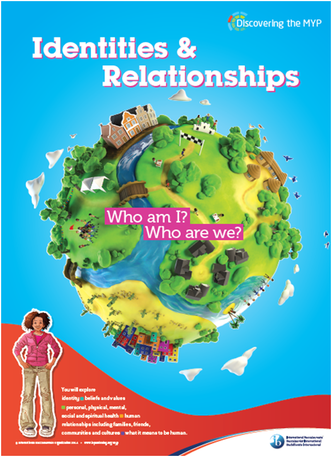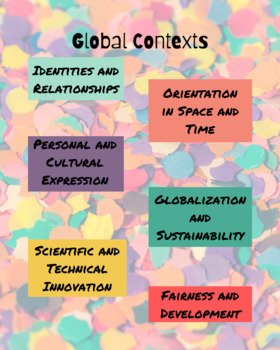

Learning how to learn and how to evaluate information critically is as important as learning facts. This period, encompassing early puberty and mid-adolescence, is a particularly critical phase of personal and intellectual development and requires a programme that helps students participate actively and responsibly in a changing and increasingly interrelated world. The International Baccalaureate Middle Years Program (MYP) in grades 6-10 connects the IB Primary Years Program (prek-5) and the IB Diploma Program (grades 11-12). Requirements for the IB Diploma include a Creativity Action Service project of at least 150 hours.Taken as a whole, the curriculum provides a balanced education that will equip young people for effective participation in the modern world. IB global-mindedness first starts locally through serving the community, and service hours increase as students progress to high school. Both include a major reflection component. Students work collaboratively on projects, then branch out individually, notably in the 10th grade Personal Project and Diploma Programme Extended Essay.

IB courses offer a lot of chances to apply the subject matter to one's own interests, and students must also weigh how what they've learned is significant and applies to the real world.įor example, in IB Math Applications and Interpretation, a student might use modeling to predict temperatures in a particular country at a specific time, and write about how scientists need to use this.
#IB GLOBAL CONTEXTS VUD FULL#
Whether a full Diploma Programme candidate, taking individual IB courses or in the Career-related Programme, students develop college level writing and research abilities.

Reporting on their inquiry during the unit has included writing summaries, visual art, research papers, oral presentations and more.Īsking challenging questions, pursuing critical thinking and honing communication skills becomes more advanced in IB courses in 11th and 12th grade. Students' inquiry is: My perspective on access to education is broadened through understanding power and privilege within a cultural context. An IB MYP key concept for this unit is Perspective, and the MYP Global Context is Fairness and Development. This big idea leads to examining topics including poverty and inequalities. As they read, "I Am Malala," students encountered the global issue of education, and how not all children have access to education. Blair 7th graders have read a first person account by someone their own age, Pakistani Taliban attack survivor, Malala Yousafzai. In MYP, units are organized around a global issue and a big idea. In the Middle Years Programme (MYP), the IB approach is embedded in the curriculum. Key concepts, such as logic, creativity, systems, identity and change are applied within global contexts.įor example, in 7th Grade English Language Arts, Blair students accomplish California state standards to analyze literature including themes and points of view, but go further. All strive to demonstrate the IB Learner Profile.Reflecting on the learning experience and process during and after.The goal is to grow personally and academically.Learning is linked to the world around us, including pursuing a second language.Learning experiences include hands-on engagement.Assessments are tied to the real world, with clear rubrics for evaluation.Connections are made among all subject areas.The student is the center of learning, taking responsibility to choose where and how to delve deeper.Rather, IB emphasizes Inquiry, Action and Reflection. When Blair graduates are asked what they gained from IB, a common answer is, "I learned how to learn." The IB approach is not about regurgitation of facts.


 0 kommentar(er)
0 kommentar(er)
